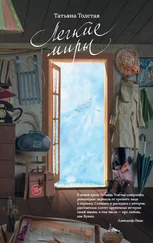Things weren’t going well for him; when he rang Frolov’s doorbell, his neighbor didn’t immediately open—it must have taken him that long to walk through all his endless rooms to the front door.
“Take my mini-boiler!” pleaded Shulgin.
“I won’t.”
“Then take one of my grills. Or both.”
“No, I won’t take the grills, either.”
“Frolov, I’m giving it to you for free!”
“There is no such thing as ‘free,’” answered Frolov, and Shulgin could see that his neighbor’s eyes were dimmed with unhappiness, that behind him in the endless enfilade of rooms were TVs and more TVs—on the floor, on the ceiling, and others more still in their boxes.
“But you said that there was!”
“I didn’t. I said they were handing things out ‘free of charge.’ There’s a big difference.”
“Okay, fine…. Can you buy this mini-boiler, then?”
“Where would I get that kind of money?” Frolov sighed.
Shulgin also didn’t have any money, only things. What else could he do, he took the boiler to the Savelovsky trading complex, and there, the only buyer he could find—after much haggling and for a third of its value—was one of those gloomy Kebabs.
Can’t they just stay in their sunny Shesh-besh-abad? Why do they need to come here anyway? thought Shulgin. He used the money to buy Kira a stroller, the most expensive and beautiful one there was, with pink ruffles. On the next day, the window handed him an envelope, and there, on graph paper, a hand written note: “Minus ten.” Shulgin broke out in a cold sweat, terrified: What is this—this “minus” business? Once home, he grew even more alarmed: Oksana relayed to him, through her tears, how, in a corner in the new room, the plaster from the ceiling had come crashing down, scaring everybody, but thankfully not falling on the stroller with Kira in it! And wouldn’t you know it, ten square feet of plaster—exactly—had fallen down, the cement peeking through. They cleaned up the mess, but that night a strange rustling was heard. Shulgin jumped up to look—but no, nothing fell. It was simply the walls closing in to make the room a little smaller.
He grew suspicious, his wheels turning.
“You didn’t throw anything away yesterday, did you?” he asked Oksana.
“Just some logs from the bathtub. Why?”
“Please don’t throw anything else away,” said Shulgin.
“But they were crooked and useless!”
“You don’t know what you’re talking about, woman.”
Of course, he didn’t know what he was talking about, either, and he couldn’t figure why his living quarters have been made smaller: Was it the mini-boiler or the half logs? What were the rules here? Maybe it’s like backgammon? You make a wrong move and voilà, you can’t get rid of any of your checkers? And Frolov: How did he play? Why was his apartment endlessly getting bigger and bigger, why was it packed with TV sets?
For two months following, things were boring and dull, but safe: he went to the window as if it were his job; there, random crap was meted out—baby powder, paper clips, a bland white Polar Bear waffle cake, homeopathic pellets for an unspecified illness, pots with seedlings. All of it took up space. Shulgin behaved, he kept everything, until he was finally rewarded with an envelope containing a note: “270 square feet, with balcony.” It all worked the same as last time, the only difference being that Oksana herself now found the door, which was obscured by the wallpaper, and by the time Shulgin came home she had already moved the Nefertiti ottoman, along with a table and two armchairs, into their new room.
“Perhaps there are other surprises hidden beneath the wallpaper?” rejoiced Oksana.
“Perhaps… but not all at once,” responded Shulgin, playfully slapping her on the ass and mentally calculating that they had already swallowed up the entire expanse of Naila Muhummedovna’s apartment and were now extending into the space where the Bearshagsky kitchen was. But neither Naila Muhummedovna nor the Bearshagskys were complaining.
Another week went by with Shulgin receiving things both necessary and unnecessary, and then something dreadful happened: they were invited to a birthday party at a dacha. Oksana mused and debated aloud, trying to decide which gift was best, Obsession eau de toilette or a tie; subsequently Shulgin’s guard was down. Upon getting out of the cab, however, he finally noticed his wife dragging a big white box, and his heart stopped.
“What’s that?”
“A charcoal grill.”
“Did you buy it?”
“No, it’s one of ours. We have two of them, remember?”
“What have you done?! We have to take it back right this minute!”
But it was too late: their cab, having made a U-turn, had already left, and the birthday boy had already come out from the gate to greet and joyfully thank them for such a thoughtful gift. Shulgin couldn’t eat a single bite of his shashlik; he was worried sick about what the window would think about this, how it would punish him. Oksana also looked crestfallen: she must have incorrectly concluded Shulgin was just greedy, a dog in the manger. Once home later that night, Shulgin ran to check—had the walls moved, and what about the ceilings, was the balcony still there, what was going on with the fridge and the stove?—misfortune could come from anywhere. He inspected the fuse box, looked under the beds, and counted the appliances and the unopened boxes stuffed with unnecessary things imposed on him by the window. Counting was easier said than done: there were boxes up to the ceiling filling all three rooms; in the hallways you had to squeeze by sideways. But everything looked to be okay until his mother-in-law, who had taken Kira for the weekend, called to say that the child had a high fever, she was burning up.
“This, this is all your doing! That’s what you get for the grill!” Shulgin yelled at Oksana.
“Are you nuts?” Oksana broke into tears.
“Don’t touch my kid! You hear me? Don’t you dare touch my kid!” yelled Shulgin into thin air, shaking his fists.
By morning, Kira’s fever was down, and Shulgin—enraged and resolute—marched over to the window to hash this out mano a mano: What the hell is this shit? The window issued a pair of valenki, just as at the dawn of their liaison.
“What’s this supposed to mean?” Shulgin demanded angrily, banging the closed shutters with his fist. “Hey! I’m talking to you!” The window was silent. “Answer when people are talking to you!” Silenzio. “Don’t say I didn’t warn you!” blustered Shulgin.
At home, he cooled down a bit and started contemplating his next steps. Things weren’t looking good. On the one hand, the unseen evil forces behind the window were daily handing out gifts—perhaps not of the highest quality, but quite decent nonetheless. In the span of just eighteen months, Shulgin had accumulated enough to open up his own store. But on the other hand—and here was the catch—the window wouldn’t allow you to sell anything. Wouldn’t let you sell anything, wouldn’t let you give away anything, wouldn’t let you throw out anything. It was a totalitarian regime, thought Shulgin bitterly, absolute control and no free market. Then again, it wasn’t totally inhumane—once the apartment became so full it was close to bursting, the window did thoughtfully expand your living quarters. In Frolov’s case, they seemed to be expanding ad infinitum. Be that as it may, who needs all this square footage, even with a balcony, if you can’t do with it as you please?
Maybe I should privatize it? considered Shulgin.
“What do you think about privatization?” he shouted to Frolov. His friend was silent; perhaps he couldn’t hear him. It wasn’t at all comfortable playing or even just sitting in Frolov’s apartment anymore—there were railroad tracks everywhere, mine trolleys were zooming every which way, knocking over backgammon pieces and coffee mugs—the racket was insufferable and so was the smell. TVs now continuously covered all of the walls.
Читать дальше






